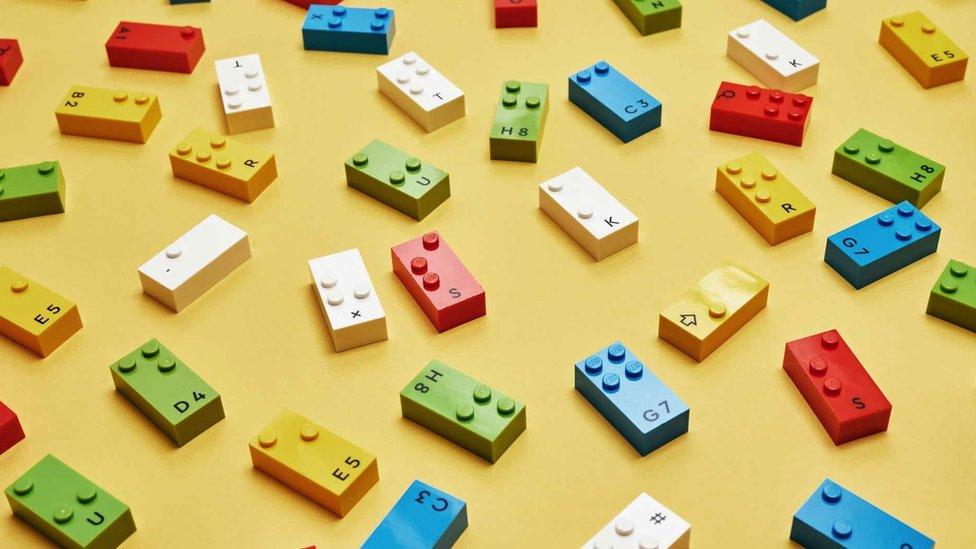Lego launches new Braille Bricks for children with vision impairments
- Published
- comments

Lego has launched a new set of bricks in seven countries, including the UK, France and USA. - and they look a little different than usual.
The Braille Bricks will also launch in six languages, including Danish, Norwegian, English, Portuguese, German and French.
Lego says they hope they will help children with visual impairments to develop skills through touch and learn the braille system in a fun way.
The bricks are moulded so that the studs on top reflect individual letters and numbers in the braille alphabet.
Braille is a system of raised dots which enables a blind person or someone with vision impairment to read.
They use their sense of touch to feel the shape of the dots, which tells them what the words are.
It is based on six dots, like the design on a domino. It consists of 63 symbols, made up of all the possible variations of these dots.
Braille can be used for most of the world's languages.
It was invented by Frenchman Louis Braille, who was born in 1806.
WATCH: What are Braille Bricks? (2019)
They also feature printed letters, numbers and symbols so that they can be used by all children and teachers - everyone can play together at the same time.
The Royal National Institute of Blind People (RNIB), helped develop and test the bricks in the UK.
David Clarke, its Director of Services, said: "Braille is an important tool, particularly for young people with vision impairment, and these cleverly designed bricks enable children to learn braille creatively while also engaging with their classmates in a fun and interactive way."
As part of the launch, Lego will send out Braille Bricks toolkits free of charge to certain schools and services helping with the education of children with visual impairments.
Each kit will contain over 300 Braille Bricks covering the full alphabet in the chosen language, numbers 0-9, and select mathematical symbols and punctuation marks.
"The possibilities for learning through play are endless, and we look forward to seeing how this can inspire children in their journey to learn braille," says Stine Storm from the Lego Foundation.
- Published3 August 2020
- Published17 March 2020
- Published8 August 2018
